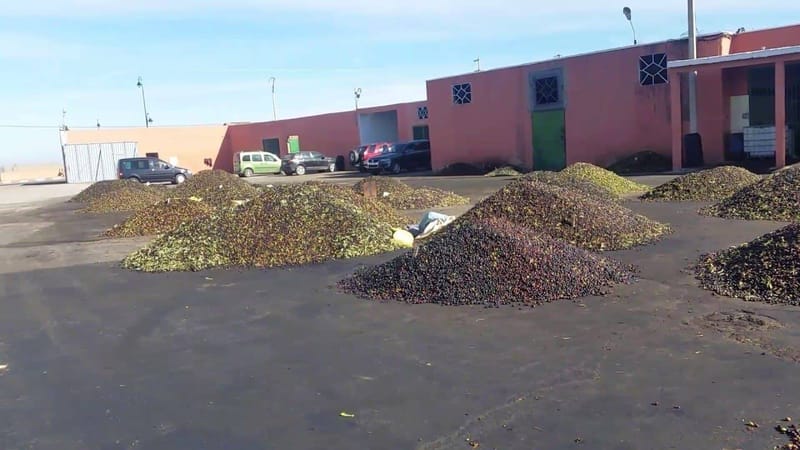The olive sector is one of the most important crops produced in the provinces of Wazan and Chefchaouen

. The olive crop is one of the most important agricultural crops produced, where olive oil is a healthy food rich in useful fats and vitamins. It also benefits from olive to eat, and from wood and leaves, which are medically known for its many benefits where it can be soaked and drink water after boiled, and the juice of olive leaves and powder is an antibiotic for viruses.
Industry is very polluted:
The process of the olive age is one of the most polluting industries. Two types of waste are generated. The first is black liquid liquid liquid called corals. The second is solid waste called peat, which is used mostly for heating, for the manufacture of fodder and others.
The danger of the olive presses' residues is the random disposal of them, because they contain large quantities of pollutants, which pose a serious threat to the environment, soil, groundwater, surface and springs, as well as their negative effects on the air.
As for the mechanism of dealing with the waste of the olive age in the dust communities of the provinces of Wazan and Chefchaouen, the same experiment is repeated in all the factories where the coral is removed by collecting it in a deaf hole, and then dumped and dumped in the adjacent areas and the land of the pit, or disposal in the adjacent valleys directly , Or in sewage networks directly without any treatment.
Vettor and its risk to the environment:
The wastewater produced by the olive presses is highly polluted, where the proportion of organic matter is high. The vet of coral water is dangerous to the environment because it has chemical properties that make it difficult for nature to do what it does. Pollution by normal methods, and the percentage of toxic polyphenols in the coral produced by olive presses.
It is supposed to have each pitcher a cesspit, where disposal of the contents of the pit represents the problem, where the disposal of waste there is a problem, both in the valleys or open spaces, these residues destroyed the soil and caused environmental pollution did not find environmental studies any radical solutions .
Possible uses:
Coral liquid, if used in soil and soil, is useful. Each dunum absorbs 8 kg of corals as fertilizer and a natural herbicide that eliminates poisonous weeds.
Peat can be used as a herbicide, as it is used for irrigation and others, but the whole world has not found a radical solution for liquid wastes.
